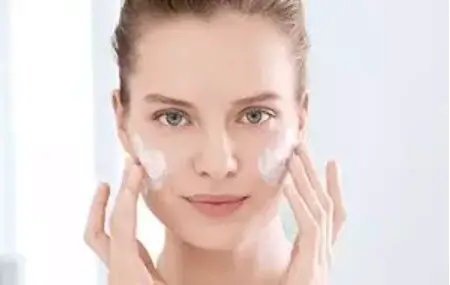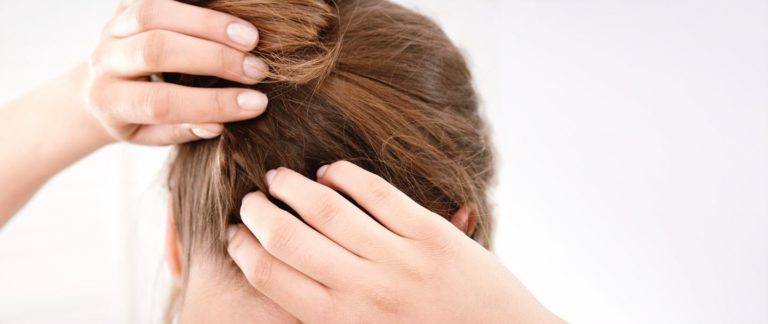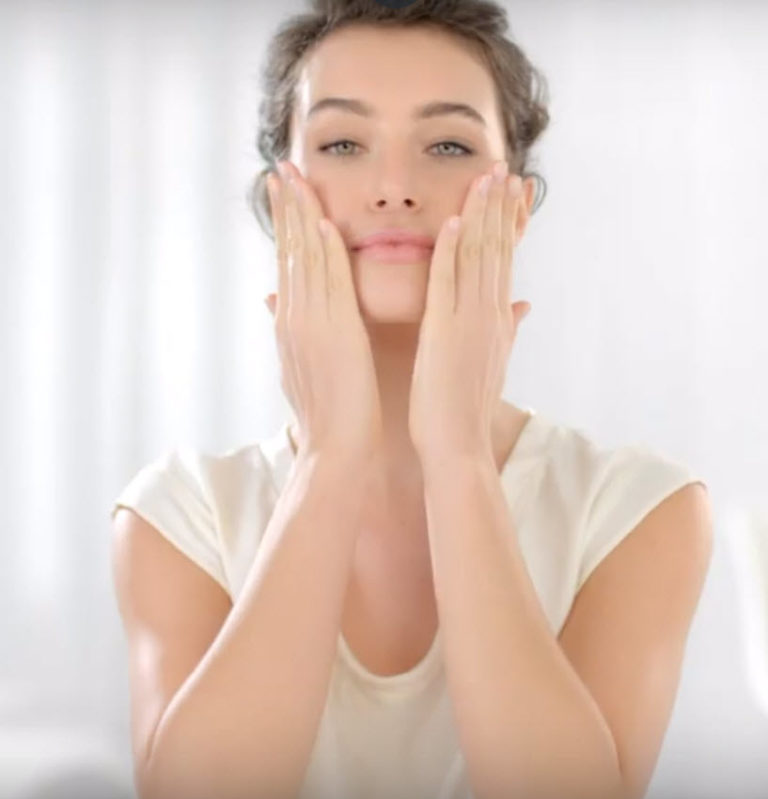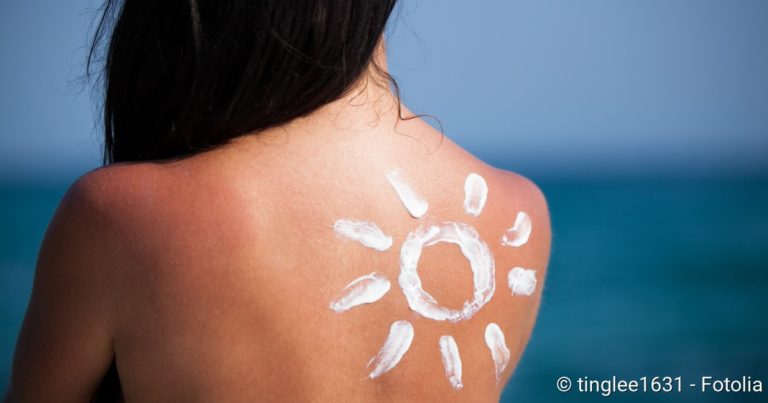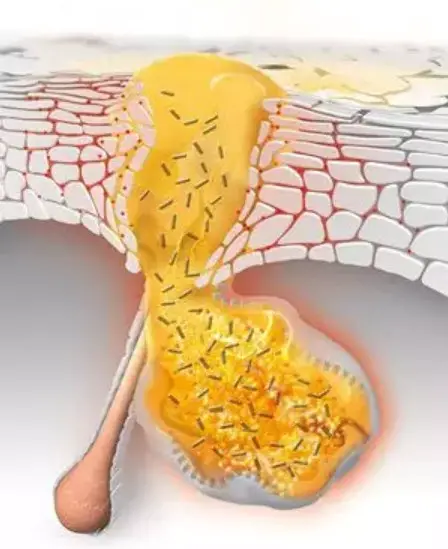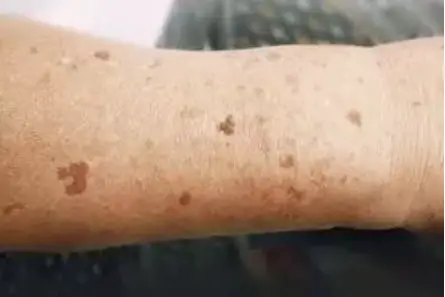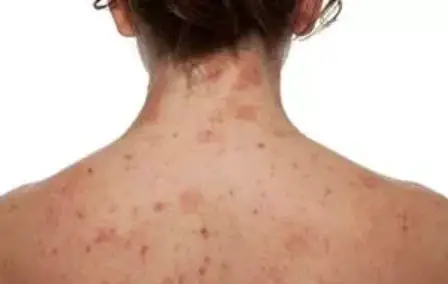Impure skin: Causes And treatment tips
Impure skin: Causes And treatment tips
The most common skin problem in industrialized countries is impure skin, which can also lead to acne. This is not surprising, since the cause affects everyone: hormonal changes during puberty. Up to 95% of teenagers are affected by skin blemishes to some degree, 30-40% of them* with symptoms so severe that medical treatment is required.
It is therefore somewhat more surprising that a great many adults also suffer from so-called late acne – and the trend is rising. Impure skin at 30 is not uncommon. However, the causes cannot be named here so quickly. Hormonal changes in women, medication and other factors are usually the decisive factors here.
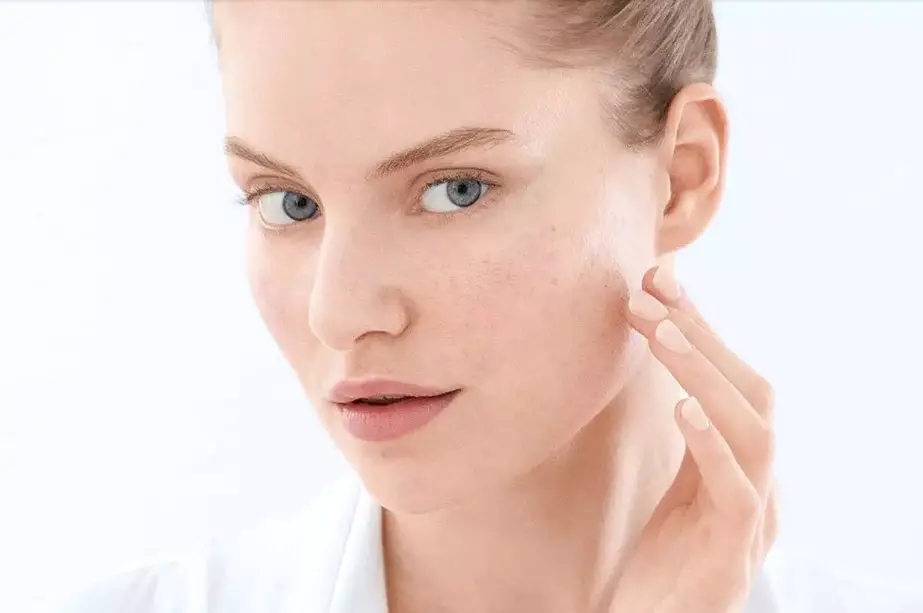
Read more about the different forms of acne.
Signs of blemished skin
What is impure skin prone to acne?
Mostly one recognizes impure skin quite quickly by its slightly greasy, shiny appearance. Open and closed blackheads occur mainly on the face, often also on the neck, shoulders, chest and back. In moderate to severe cases the skin is reddened and inflamed pimples, papules and pustules develop.
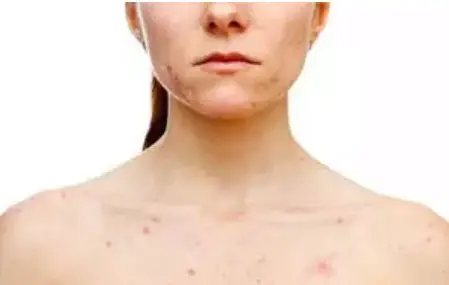
How do impurities such as blackheads, pimples or acne develop?
01 Micro-inflammations
Personal predispositions and hormonal changes create a micro-environment that promotes inflammation. This leads to an increased formation of micro comedones, which eventually lead to skin impurities.
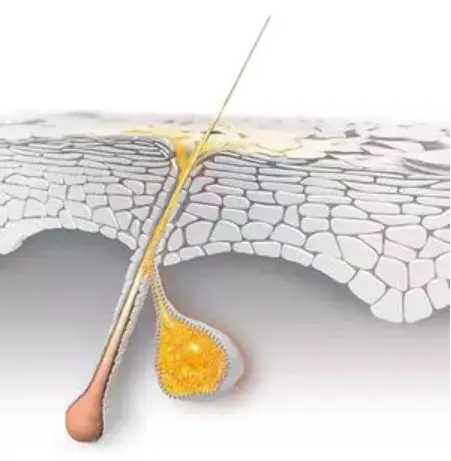
02 Seborrhea
This is the term used to describe excessive sebum production. Normally the sebaceous glands secrete an oily secretion that keeps skin and hair supple.
If certain changes in the hormone balance occur, impure skin can develop. The first visible sign is the increased sebum production.
The latest findings indicate that acne is a primary chronic inflammation of the skin or surrounding tissue.
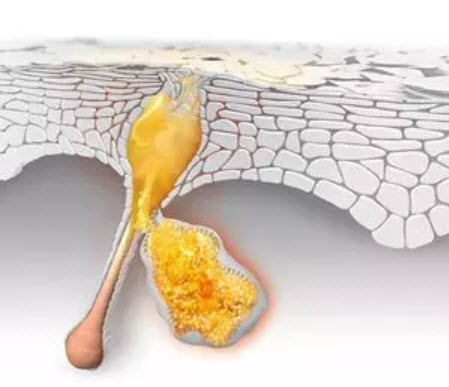
04 Microbial colonisation
Normally harmless bacteria, Propionibacterium acnes, which is constantly present on the skin surface, can multiply due to excessive sebum production.
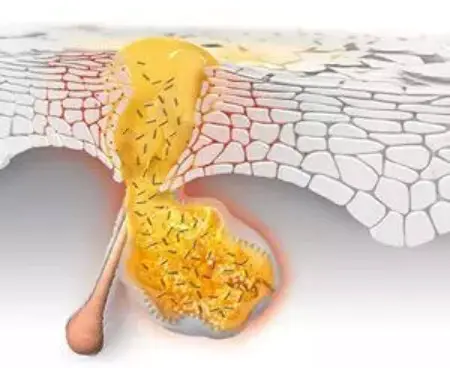
05 Inflammation
The body reacts to this surplus of bacteria and the bacterial breakdown products with an inflammation, which becomes visible as reddened papules and pustules. In severe cases, the follicle wall may break open in the late phase. Lipids, fatty acids, horny cells, bacteria and cell fragments are released and cause extensive and deep inflammation in the surrounding tissue.
Bacteria decompose the sebum, resulting in free fatty acids. These cause inflammatory reactions in the surrounding connective tissue.
What is the difference between pimples and blackheads?
Due to the described increased sebum production and the thickening of the horny layer, the sebaceous canal can become blocked. As a result, a kind of clot is formed.
These plugs are medically called comedones. Open comedones (blackheads) can be recognized as small dark spots in the skin (hence the name Blackhead) -The
dark color has nothing to do with dirt, by the way. It results from the interaction of the skin pigment melanin and the reaction with oxygen in the air.
A closed comedo can become a pimple if the bacteria in the skin continue to develop into a visible inflammation and redden (also called whitehead).
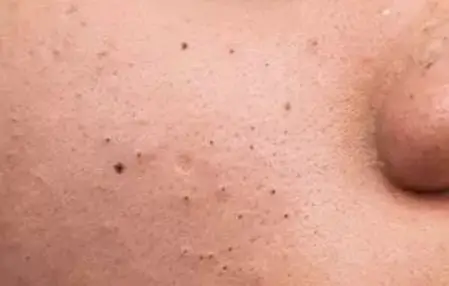
Risk of confusion with rosacea
Rosacea is a disease with very sensitive skin and can be confused with acne because of its signs. It is also a disease of the sebaceous glands, often in the middle of the face. Rosacea leads to vasodilatation, vascular damage and inflammatory tissue reaction. Thus the papules and pustules also resemble the signs of acne.
Acne
Mild acne
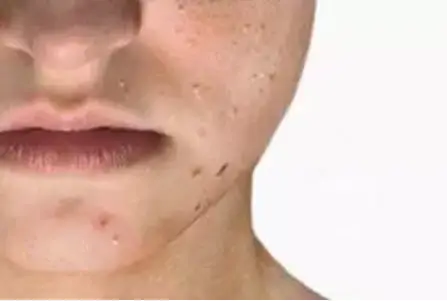
Moderate acne
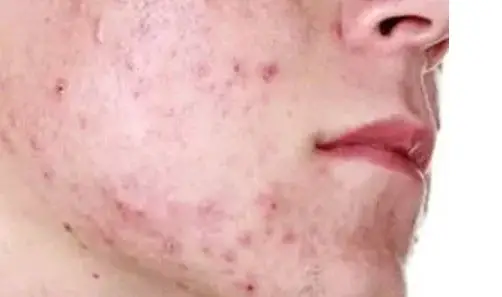
Severe acne
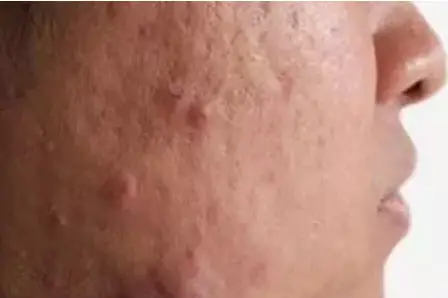
Triggers and influencing factors
The causes of impure skin.
Impure skin is a frequently observed skin condition that usually occurs during puberty. Personal predisposition together with an altered hormone balance lead to invisible micro-inflammations in the skin, which also affect the sebaceous gland follicles.
The sebaceous gland follicles are sensitive to hormones circulating in the blood and are stimulated to produce more sebum than necessary. In addition, there is insufficient exfoliation of excess skin flakes. This forms an ideal breeding ground for bacterial growth, which leads to an inflammatory reaction of the body.
This sensitivity to hormones is also the reason why adults from impure skin to late acne can also be affected, e.g. women during phases of hormonal changes and men from the bodybuilding scene. In the majority of cases, the impure skin recedes after puberty.
Many myths are firmly anchored in our minds around the topic of impure skin. But not all of them are true. Although bacteria and inflammation play a role in impure skin, it is not a contagious infectious disease. Impure or pimpled skin is also not the result of poor hygiene or the expression of an allergy.

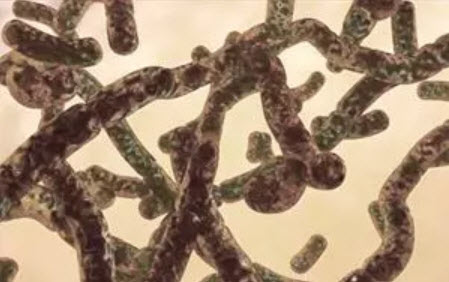
One of the main causes of pimples are the hormones
The changes in hormone balance are genetically determined and can be intensified by other factors. For example:
- the western diet with a high amount of carbohydrates
- excessive consumption of cow’s milk and milk products
- Smoking
- unsuitable skin care products and make-up that have not been tested for their so-called comedogenicity
The genes also play a role in impure skin
There is evidence that genetic predisposition plays a major role in the development of impure skin. If both parents suffered from these skin symptoms in their youth, then the probability that their children will also develop impure skin that tends to acne is high.
Drugs can be responsible for acne
It is known from certain drugs, for example steroids and lithium, that they can lead to impure skin.
Tip:
Talk to your dermatologist about possible forms of therapy if your symptoms worsen.
The diet can also influence impure skin
Not only the normal change in the hormone balance of the young people plays an important role, but also the western diet with its high proportion of carbohydrates and cow’s milk can influence the skin texture.
Recommendations & tips
What to do in case of impure skin? These tips help against impurities.
If you suffer from a more severe form of acne, there are effective drug therapies and effective cleansing and care products available today.
It is known that some drug treatments dry out the skin considerably – in this case, a moisturizing treatment can be useful.
It is also advisable to use a sunscreen in daily skin care, which is suitable for impure skin and skin prone to acne. Especially in the case of acne treated with medication, the skin reacts particularly sensitively and must be protected from sunlight. Eucerin Sun Gel-Creme Oil Control SPF 30 is an ideal sun protection for impure skin and skin prone to acne.
These products help with impure skin
If you suffer from impure skin, we recommend the following tips:
- For daily cleaning, use lukewarm water and a suitable cleaning product. Water that is too hot or too cold can irritate your skin unnecessarily.
- Let pimples heal in peace. Gentle squeezing can aggravate a pimple and leave scars on the skin afterwards.
- Only use non-comedogenic care products.
- Apply non-comedogenic make-up that is designed to meet the needs of blemished skin prone to acne.
- Always remove make-up before going to bed.
Learn more about the optimal routine of cleansing and care for acne and the products suitable for it.
